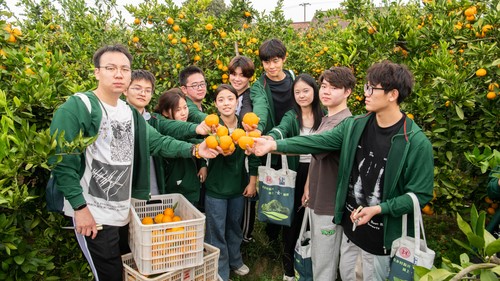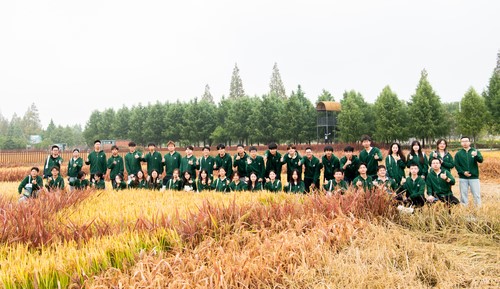“The rural area is vast and promising, full of potential. The contemporary countryside calls for new, tech-savvy, and visionary young individuals. Whether in traditional agriculture, aquaculture, or rural elderly care, the influx of new farmers is imperative.” From the outset of the brainstorm, Shi Dazhong, Chairman of Shanghai YuHaiTang Eco-Agricultural Tech Co., Ltd. (YHT) introduced the concept of “new farmers”. He then highlighted the importance of characteristic aquaculture, and issues like rural aging and urban elderly care, provoking participants of the 3rd YuHaiTang Innovation and Entrepreneurship Camp (YHT-IEC) to think about rural revitalization.
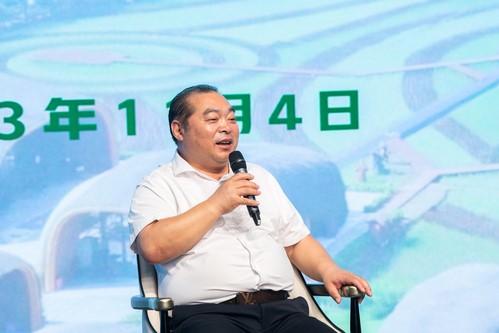
“I moved from the countryside to the city and then back to the countryside, dedicating my entire life to rural practice and research. After coming to Xin’an Village of Chongming, I discovered not only characteristic agricultural products, but also the integrated development of agriculture, rural culture, and tourism. It is a fertile ground for rural revitalization, and this ultimately made me to stay. Today, among the participants of YuHaiTang Innovation and Entrepreneurship Camp, I see new hope because the foundation of rural revitalization is talents, and the key to rural revitalization is technology!”
Ms. Hu Xiaoqin, former Deputy Dean of the Institute of Rural Construction of China, shared in-depth insights from three perspectives: “Why I moved from city to countryside, why I chose YHT, and what kind of young people the new era countryside needs.” She encouraged young university students to sweep not only the wings of technology, but also the invisible wings of thought.
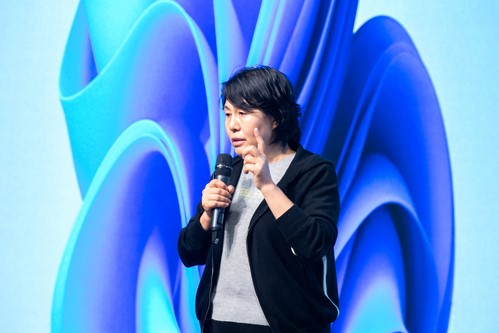
On the evening of November 4, the brainstorming session of the 3rd SDJU YHT-IEC took place at the Rice Field Building of Xin’an Village, Sanxing Town, Chongming. The session featured rural revitalization practitioner, SDJU alumnus, Chairman of YHT, Mr. Shi Dazhong, along with Ms. Hu Xiaoqin, a culmination of rural revitalization practice and theory as guest speakers.
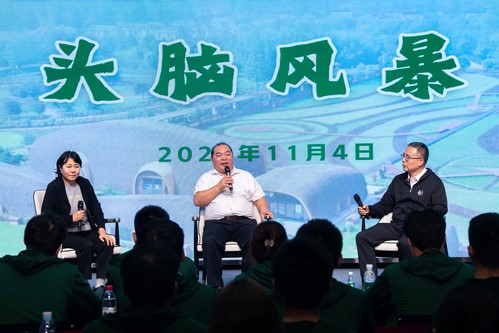
“I have an idea to connect urban residents with rural areas--the poultry and livestock foster care. The Chongming White Goat, for example, has always been a sought-after delicacy among Shanghai locals. So, it may be feasible to develop a foster care project, where urban and rural residents can sign agreement for a goat. During the breeding period, entrusting city residents can track and observe, or visit, and when time is right, they can come and take their mutton or have it delivered. During the brainstorm, Chen Xiaoling an International Trade junior from SDJU School of Business shared her idea. Many other students also proposed creative initiatives around elderly care in rural areas, water pollution management, live streaming sales of agricultural products and so on.
From November 3 to 5, the 3rd SDJU YHT-IEC was held in Xin’an Village. After selection, a total of SDJU 42 students participated in the three-day event. This training camp was a solid step for SDJU, an applied technology university, in exploring suitable pathways for rural revitalization in response to national requirement. It also strengthened SDJU’s involvement in local development, played a role in synergistic empowerment, provided a practical learning platform for college students, winged rural revitalization.

During the camp, Rao Yingfu, the Deputy General Manager of Shanghai Lin-gang Innovation Center, delivered an engaging lecture on entrepreneurship for the students. He pointed out that not everyone is suitable for entrepreneurship, but everyone can innovate. Drawing on the entrepreneurial experience of a fellow alumnus from our university, he introduced a series of excellent qualities needed by entrepreneurs, such as a strong entrepreneurial consciousness, a good psychological state, competition awareness, planning ability, and more. He also discussed the core principles of business and the merits and demerits of student entrepreneurs. Then he encouraged students to start up with service and research ventures and emphasized the significance of participating in competitions like “Challenge Cup” National Undergraduate Competition on Extracurricular Academic Science and Technology Works and China College Student Business Plan Competition on their entrepreneurial path. Qing Hailong, deputy secretary of CPC SEE Committee and vice dean, shared his perspectives about enhancing innovation capabilities by drawing on his own experience of guiding “Challenge Cup” winners. Using plenty of classic success stories, he illustrated that innovation is the source of entrepreneurship. He also elaborated on the concepts of model innovation, operational innovation, market innovation, and service innovation, anddelineated the common characteristics of “Challenge Cup” winning entries to provide participants with a preliminary understanding of the common types of micro-innovation.

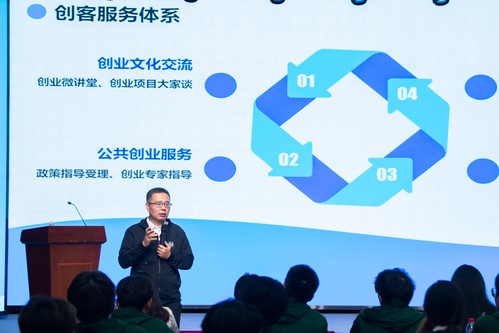
In the final sharing, every participating student took the stage to share their thoughts. Junior student, Zhao Mingyue majoring in International Trade, shared her insights, saying “Building up a business is a process of mental refinement for everyone aspiring to achieve their dreams. When a person determines to venture into a business, they have already the courage to step out of their comfort zone. The act itself is a form of success, and a truly successful life is not solely determined by the magnitude of one’s achievements.” Yan Congzhou, a sophomore majoring in Automation, expressed gratitude, stating, “The YuHaiTang Innovation and Entrepreneurship Camp has been an incredibly opportunity to learn and to grow up. It not only enriched my knowledge and enhanced my skills and qualities, but also laid a solid foundation for my potential path of innovation and entrepreneurship. I believe that in this era full of opportunities and challenges, the ability of innovation and entrepreneurship will become an increasingly important competitive advantage, and YHT Camp is indeed an ideal platform for cultivating this capacity.”
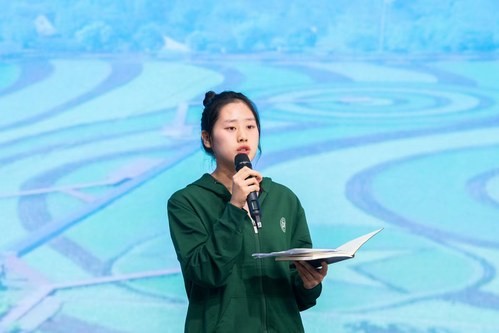


At the YuHaiTang Park, the participants also had a taste of beautiful countryside by participating rich Chongming style agri-tourism activities, such as fruits picking, modern agricultural sightseeing, ecological agricultural science, characteristic food, and original accommodation.
